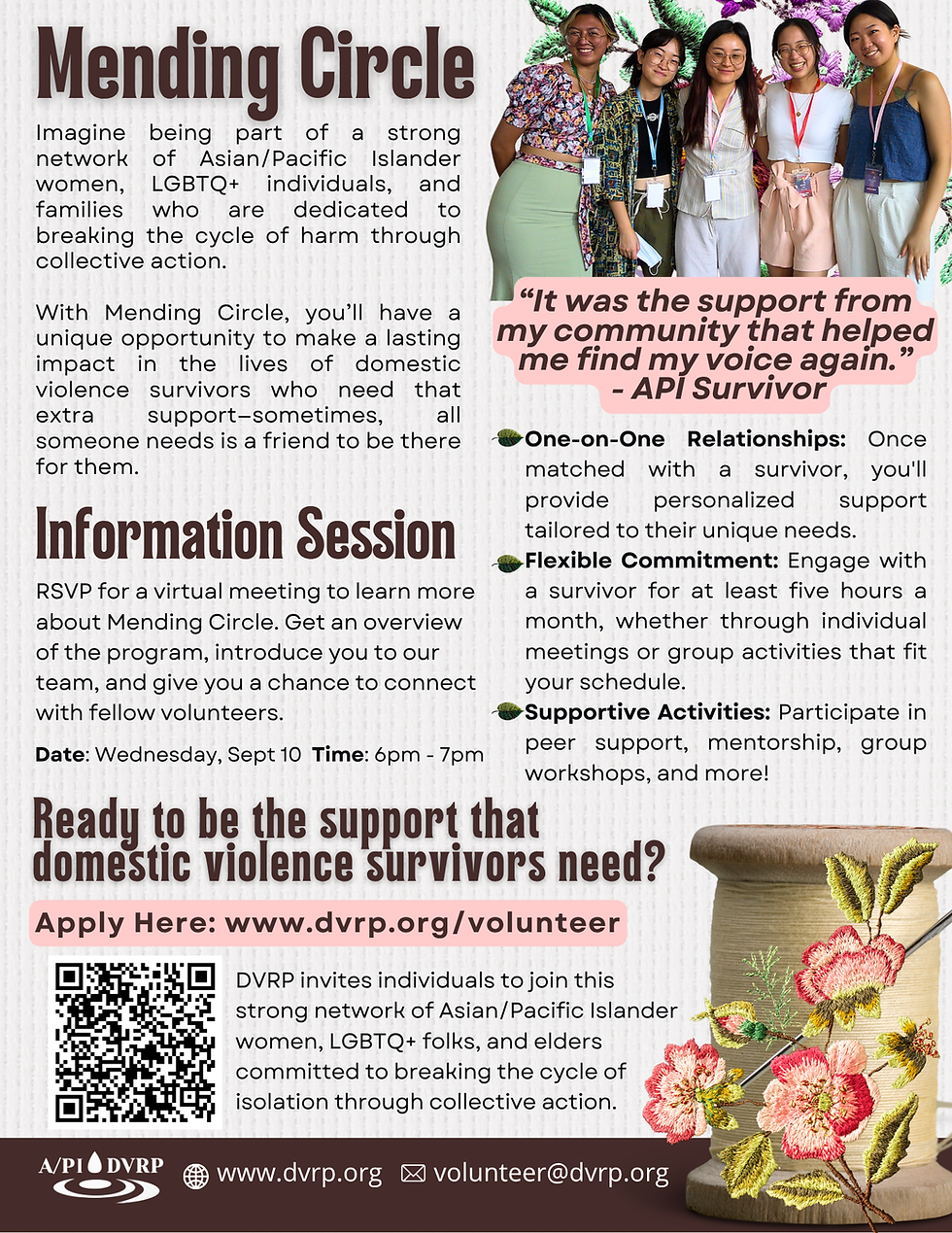On Black History Month
- DVRP Admin

- Feb 28, 2023
- 4 min read
– reflecting on Black feminisms, solidarity, and a long (and purposefully untaught) history of women’s anti-imperialist global solidarity + feminism.
By Celine

February is often recognized in the United States as Black History Month; I appreciate the existence of any effort to call attention to & consequently redistribute some of our resources (time, money, attention) towards identities, ways of practicing and understanding life, and ways of relating to one another which contribute to greater equity. As such, I believe that some ways to observe this month in a non-performative way could include reading and processing more about Black history, learning and unlearning hierarchical structures in our beliefs and practices (e.g. merit-based access to resources, unlearning carceral punishment, donating and contributing to mutual aid, and actively practicing removing biased and harmful assumptions, statements, and actions from our behavior), rooted in the value or principal of racial equity and justice.
What does this have to do with us? As Asians on stolen land (living in North America, or Turtle Island as Indigenous Peoples recognize it), what energetic debts do we owe those whose oppression allowed us to experience life in this region to begin with? What frameworks for survivor-centered, trauma-informed healing stem from Black feminists? Our work of living in this life may include speaking to and healing with our ancestors and with ourselves, but also acknowledging that we live in a state which has and continues to actively profit off of the exploitation and harm of Black folks, femmes, generationally- and racially-oppressed groups begs the question – what is our responsibility as we try to make a life that works for us in the midst of it?
Do you believe that you are just here to “make the most out of your life”, take the most that you can out of the resources synonymous with being alive, and go?
Oftentimes our ‘safety’ (reflection question: what does safety mean to you? Are there components of it that cannot be guaranteed by the state? Or a racially capitalist state? And what does it mean to you to want to seek safety from the state?) as survivors (from harm in interpersonal and broader, global forms) can be seen as afforded by “not being the most at risk” and/or through favorable social positioning. Within a racial hierarchy practiced in Western capitalism, we are often sold the myth of safety through assimilation and respectability politics. As Freedom, Inc. said in their statement on the killing of Yia Xiong, “No one can tell us how to express our anger, hurt, or pain. We must address the false privileges given to [Southeast] Asians that allow us to peacefully protest, and also tries to make us feel like one [racial] group is more violent than the other. The division advances the violent efforts of white supremacy and gives us the illusion that one group is more deserving of justice over the other.” In what ways are the ways have I been sold the narrative that one survivor is more deserving of healing or justice for being better-behaved? What safety could I experience in my own experience if I let that assumption go? What would it take to unlearn that?
We all deserve safety, and I agree that thinking of safety as only possible in solidarity with one another makes life a bit more complicated. However, I think one way of practicing solidarity is a commitment to the outcomes of one another – to commit to experience safety, joy, freedom, and health within an ecosystem which doesn’t disadvantage other identities the same experiences. If I want to heal from my trauma, I want a system which doesn’t create more trauma in the process, or we will be enmeshed in a web with an endless cycle of emotional and holistic labor spent supporting further pain and harm. As a survivor, I often want as little to do with generating pain as possible and know that this isn’t a true answer to experiencing safety. So perhaps, it becomes a little bit simpler to acknowledge solidarity within this process.
As we experience violence and are sold the narrative of carceral punishment as a response to harm, let us remind ourselves that the police were created to defend property and maintain white supremacy, and that calling on them only advances further abuse and harm (google “40% of police” (cw: Domestic Violence and Police Violence) if you would like a thinking point to start). I encourage us to thinking about our healing and living journeys as interconnected, and for ideas on practicing solidarity, reflect on any of these questions, or the suggestions in the first paragraph.
Globally, women’s activism has long relied on solidarity, especially against imperialism, even before the Bandung Conference. The Afro-Asian Women’s Conference of 1961 emphasized global solidarity as essential for liberation... and regardless of how you have recognized Black history month thus far: I challenge us to question and learn more about how our healing can or must be done in commitment/solidarity across racial groups, and to do all that we can to honor and uplift the labor and experiences of the Black community (and reminder: Black Asians exist!) who have paved the way for our present-day experience of rights and struggle for justice.



Comments